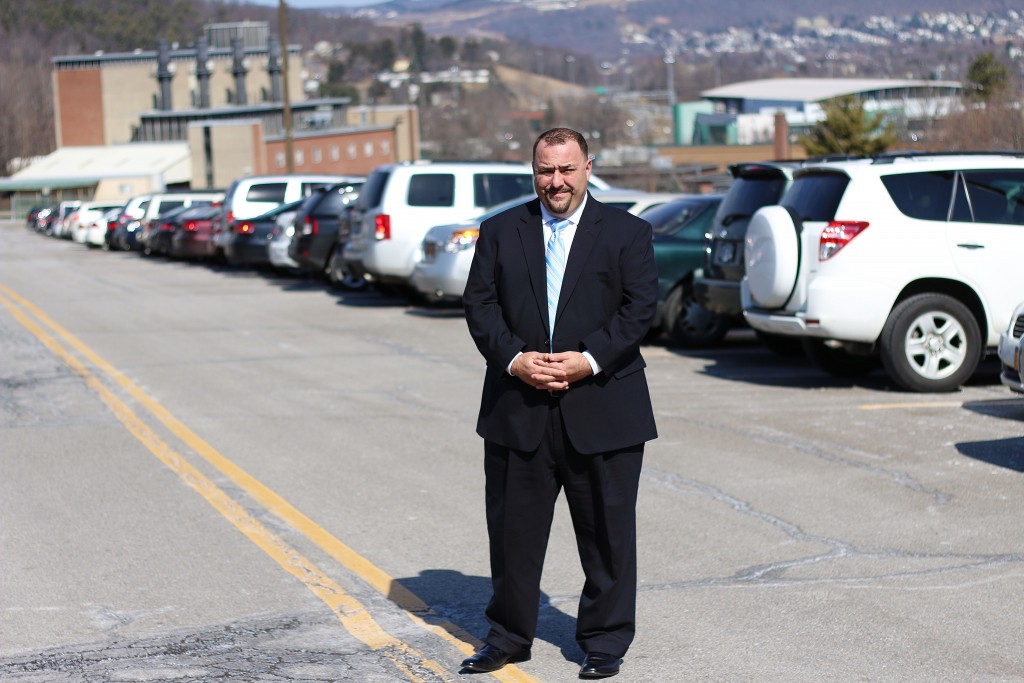
As a response to growing concerns about the state of parking on campus, Binghamton University has hired a new executive director of parking and transportation services.
Brian Favela earned his bachelor’s degree in business administration from Colorado Technical University and both his MBA and MA in management and leadership from Liberty University in Virginia. After serving as the senior director of parking operations and transportation at the Texas Medical Center for almost four years, Favela applied for the newly opened position at BU. He officially started the position on Feb. 15.
According to Vice President for Student Affairs Brian Rose, it is not only important to solve current parking problems, but also to prepare for future issues. He said Favela’s experience made him right for the job.
“I’m confident he will provide the strategic thinking we need to identify solutions that will stand the test of time,” Rose wrote in an email. “Long-term solutions are our focus as we don’t want to invest in parking and transportation infrastructure that will be insufficient for our needs again in a couple of years.”
The 32 commuter parking lots, which are open to those who live off-campus and have a commuter parking permit, are located on campus, at the Innovative Technologies Complex (ITC) and at the University Downtown Center (UDC). There are 22 of the 24-hour lots that are open to anyone with a parking permit, including students who live on campus.
Susan Crane, the director of parking services at BU, said there are enough parking spaces to accommodate everyone with a parking pass. She said the problem is not a shortage, but a matter of figuring out how best to utilize the spots since students frequently have to park far away from their destination.
Additionally, Crane said that parking changes for the 2015-2016 academic year, which resulted in unhappiness among students, did not change the lot designations as is commonly understood. Prior to this year, the lot designations were unclear and the new process clarified them, which made students realize the parking system is inefficient.
In order to make changes to the designations, Favela said he needs to identify problems before he addresses them. In the coming weeks, he plans to administer a survey through B-line in order to better understand student concerns and to differentiate between parking space shortages and lot underutilization.
“I have to find out what the students want. I don’t know if we need to expand the parking operation and maybe we just need to figure out how to better utilize some of the spaces,” Favela said. “That’s why I want to explore that option first before we spend a huge amount of capital in building infrastructure, so it’s just a matter of finding that balance.”
Favela discussed the possibility of implementing technology, like an app that would tell users where there are available spots. He said he had success with updates like this at the Texas Medical Center.
“We are looking at all technologies and looking at ways to really improve the parking experience,” Favela said. “One of the things we are looking at is how we can make it as easy as possible and doing so really requires a lot of technology, so we’re definitely looking at a lot of opportunities of how we can deliver that experience.”
According to Favela, the priority is not necessarily to restructure parking at BU, but to take the current system and revise it to best fit the needs of the students and the University.
“We have the space, so until we figure out how the utilization of it is working … we want to make sure that the decisions we make are good and stand the test of time,” Favela said. “If we make a decision is it going to be able to last? We want to be good stewards of the University’s money and good stewards of the customer experience as well.”


